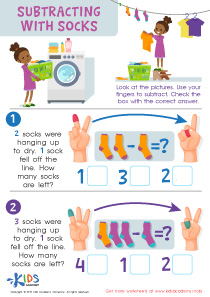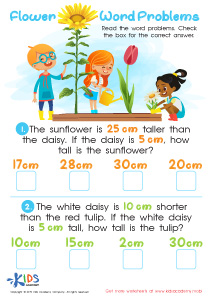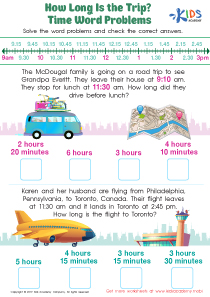Cognitive Development Addition and Subtraction Word Problems Worksheets for Ages 6-8
4 filtered results
-
From - To
Boost your child’s cognitive skills with our Addition and Subtraction Word Problems worksheets designed for ages 6-8. Combining math practice with critical thinking, these worksheets challenge young learners to apply arithmetic in real-world scenarios. Each printable fosters logical reasoning, problem-solving, and analytical skills crucial for their academic journey. Our engaging word problems not only enhance math proficiency but also boost confidence in tackling complex questions. Perfect for classroom or home use, these resources align with standard curricula, ensuring your child’s growth in both cognitive development and math mastery. Make math interactive and fun with our expertly crafted worksheets!


Enrichment -2 Step Word Problems Worksheet
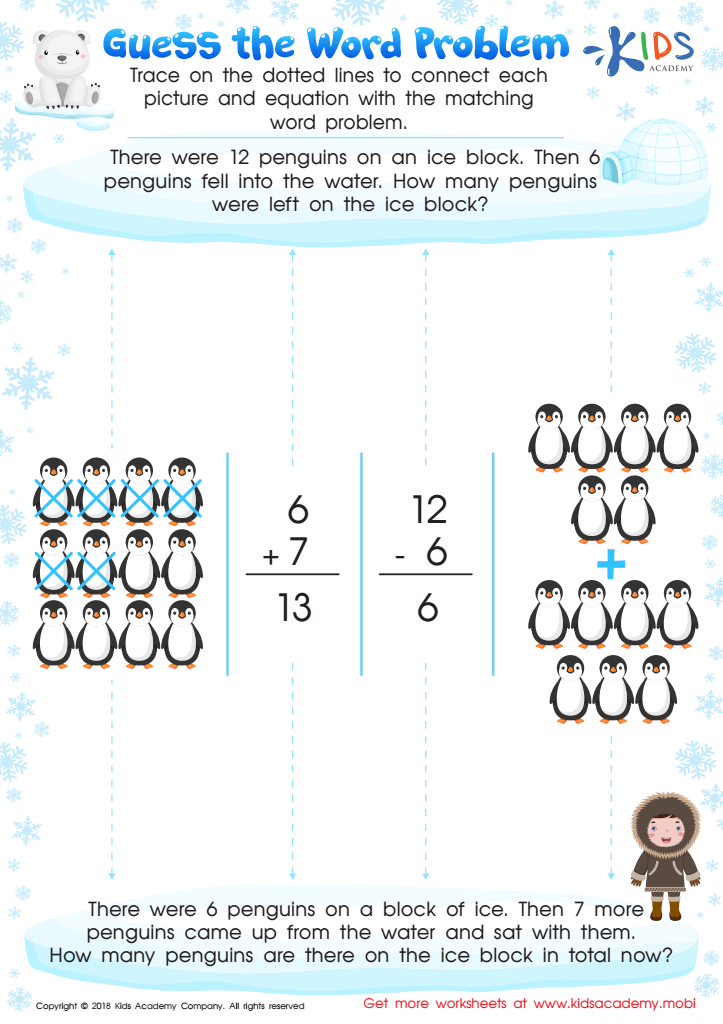

Guess the Word Problem Worksheet
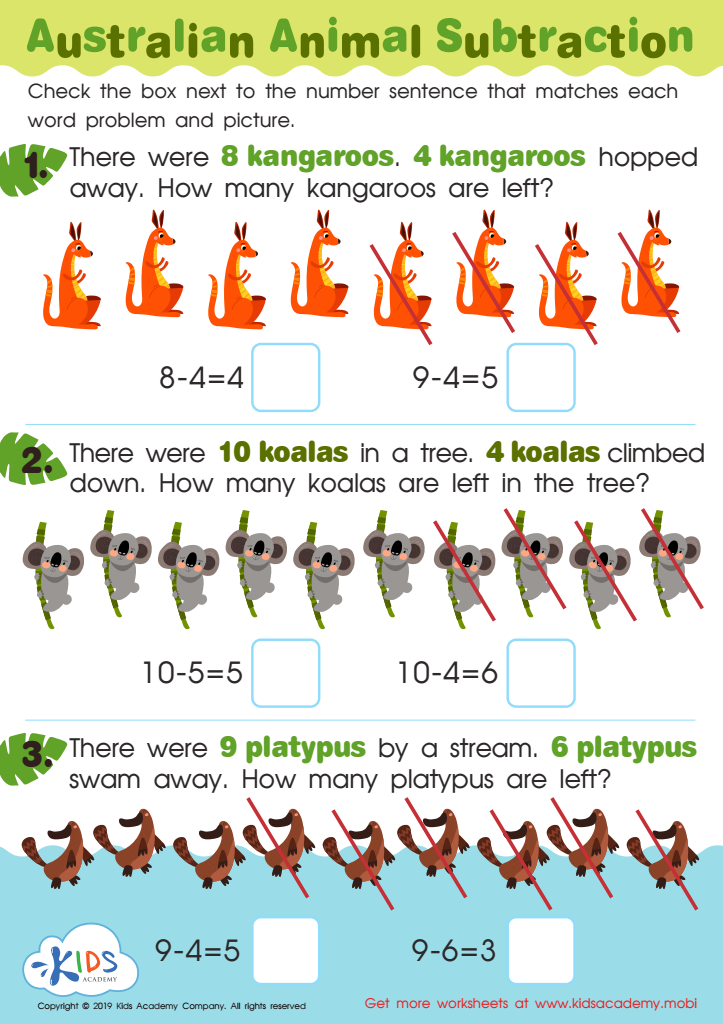

Australian Animal Subtraction Worksheet
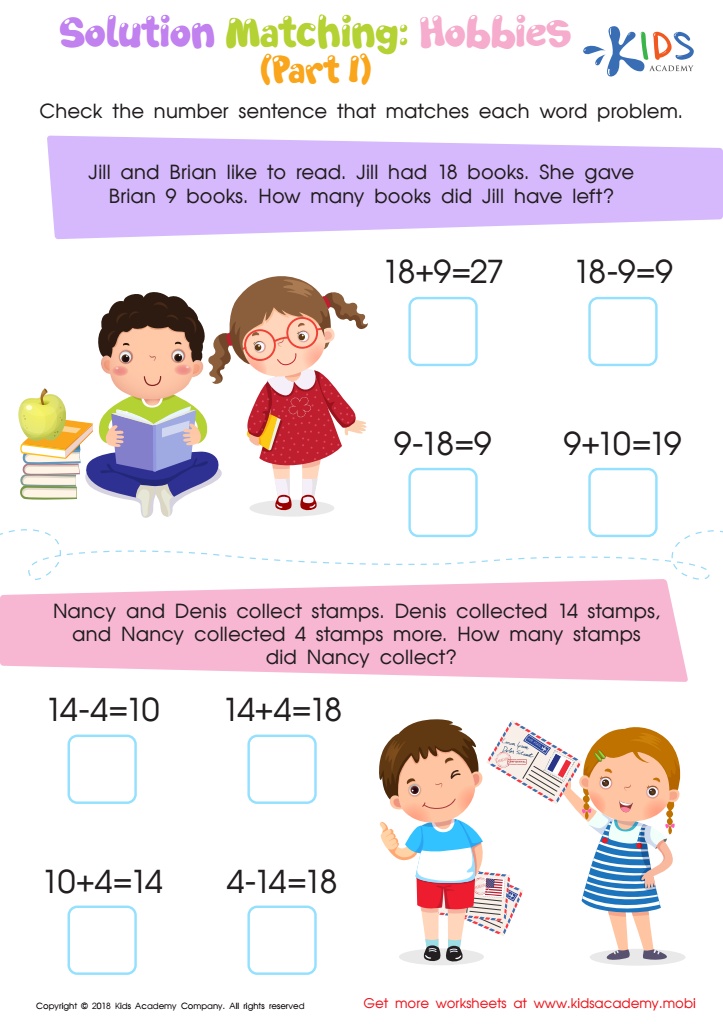

Solution Matching: Hobbies. Part 1 Worksheet
Cognitive development in early childhood is crucial, and one significant aspect of this is the ability to solve addition and subtraction word problems. For children aged 6-8, tackling these problems plays a pivotal role in setting foundational numeracy skills. These exercises enhance critical thinking, promote problem-solving strategies, and strengthen memory.
When children work on word problems, they translate language into numerical expressions, bridging literacy and math—a cognitive task requiring comprehension and abstract thinking. Successfully solving word problems requires understanding the context, employing logic to identify whether to add or subtract, and then performing the arithmetic. This integrated skill-set is fundamental in everyday life and academic settings.
Moreover, word problems based on real-life scenarios make learning relatable and engaging, fostering a positive attitude towards mathematics. Research indicates that early proficiency in math profoundly impacts future academic performance across various disciplines. Engaging in these activities helps identify and address learning gaps early, offering opportunities for tailored interventions.
Parents and teachers should prioritize cognitive development addition and subtraction word problems as they cultivate core skills and promote intellectual growth, critical for the child’s overall academic journey and real-world problem-solving abilities. Investing time and resources in these early stages can yield significant long-term educational and developmental benefits.
 Assign to My Students
Assign to My Students








